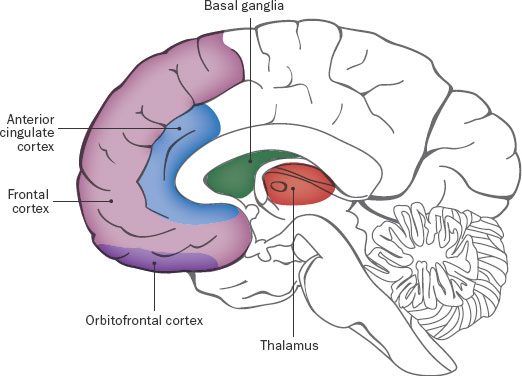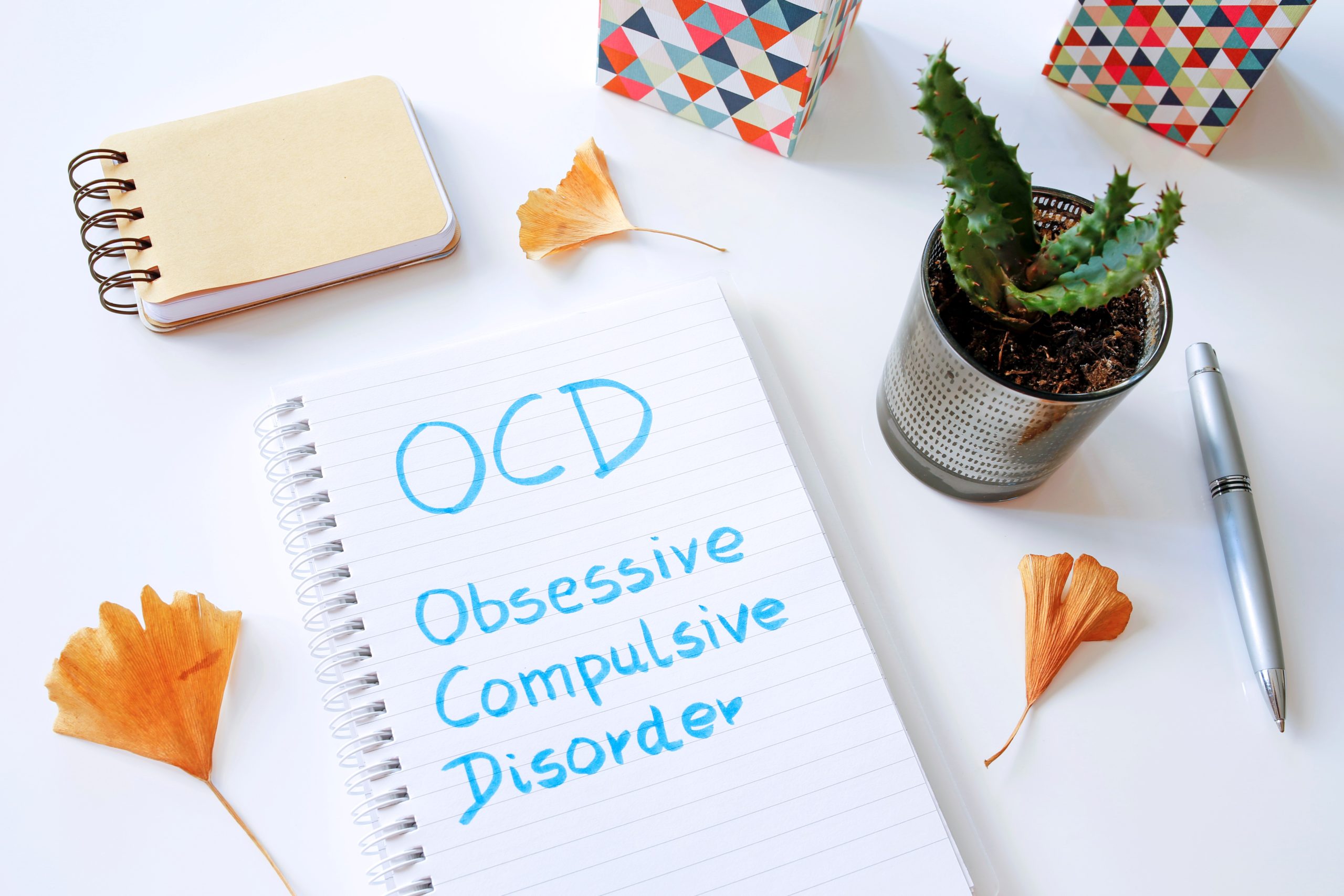Complex mental health illnesses, such as obsessive-compulsive disorder, are often attributed to chemical imbalances in the brain. In reality though, the situation is often much more complex than just simply an imbalance. While no one knows the exact answer to the question “what causes OCD in the brain?”, there are specific factors that appear to be present within diagnosed individuals.
What Is OCD?
OCD or obsessive compulsive disorder is a mental health disorder characterized by unreasonable fears, thoughts, and obsessions that subsequently lead to compulsive behaviors. It is important to keep in mind that OCD symptoms can vary by individual. Common symptoms of OCD include repetitive behaviors such as constant hand sanitizing, cleaning, or checking on certain things. Individuals with obsessive compulsive disorder are not simply just neat freaks. The compulsive behavior affects their daily life and can be completely debilitating. Their behavioral patterns are done in a ritualistic fashion. If the patterns are interrupted or cannot be done, then the suffering individual will experience extreme distress and anxiety.
In order to be clinically diagnosed with obsessive compulsive disorder an individual must present obsessions and/or compulsions that are consuming more than one hour per day, cause significant distress, and impair daily living. OCD currently affects about 2-3% of United States citizens. It is more commonly diagnosed in women and normally begins in childhood, adolescence, or young adulthood.
What Causes OCD?
As previously stated, mental health professionals are still researching what causes OCD. Unfortunately, they do not currently have a complete answer. There are specific risk factors that appear to be present in a majority of cases. These include brain abnormalities, chemical changes, genetics, and environment.
Chemical Imbalance Factors Associated With OCD in the Brain
Individuals with OCD often have certain chemical imbalances present in the brain. Changes in the neurochemicals serotonin, dopamine, and glutamate are normally present in OCD cases. Due to these chemical imbalances, a specific class of antidepressant medications called selective serotonin reuptake inhibitors or SSRIs are normally prescribed in order to improve symptoms.
Research in both animals and humans indicated that changes in these various neurochemicals are likely partially responsible for obsessive compulsive disorder symptoms. Unfortunately it is unknown if the chemical changes are the root cause of OCD. Additionally, it is unknown if they are a resulting symptom of OCD as well.
More recent studies suggest that OCD also involves changes in the physical structure of the brain as well. Neuroimaging has shown that specific areas of the brain function differently in individuals diagnosed with OCD. Neurochemicals and physical brain structure are both important pieces in understanding what is OCD caused by. However, they are not the whole picture.

Genetic and Environmental Factors Associated With OCD
One of the biggest risk factors for developing obsessive-compulsive disorder is genetics. If someone in an individual’s family has OCD, then it is much more likely that they could develop the illness as well at some point in their life. If the family member is close and their symptoms developed at an early age, then the risk is significantly higher.
Environmental factors are also influential on the development of OCD. If someone has a strong biological predisposition to OCD and is experiencing stressful environmental factors, then they are much more likely to develop the disorder. On the other side, if the individual does not experience trauma or chronic stressful environments, then they may never suffer from OCD despite being genetically inclined to it.
Behavioral Factors Associated With OCD
Behavior also plays a large role in the development of obsessive compulsive disorder, especially when an individual is experiencing stress. When someone is living with chronic stress the brain, they can begin to make associations between specific objects or situations with fear. This leads individuals to begin either avoiding the objects/situations that instill fear or they begin creating ritualistic behaviors to lessen the anxiety and fear surrounding the objects/situations.
For example an individual may have no issue with physical contact with others. However, under stress they may begin to associate physical contact with becoming sick. They would then avoid all physical contact. Or, they could excessively sanitize following any sort of physical contact that they have with another person. The behavioral patterns of the individual become habits. This then reinforces the fear of getting sick through physical contact in the brain. The more the fear is reinforced, the more the individual’s compulsions escalate. This is where daily living can become increasingly more difficult to function in.
Contact Our OCD Center in Tennessee
Here at Arbor Wellness we have spent a lot of time researching and analyzing the question, “what causes OCD?” We believe it is extremely important to understand the core underlying factors that have led to each individual’s diagnosis before proceeding forward with a treatment plan.
Obsessive compulsive disorder does not present itself in the same way for everyone. This is why we believe in offering a variety of therapeutic services. Our goal is to create a personalized treatment strategy. We believe in combining our medication management, holistic therapy, and behavioral therapy programs into an individual’s treatment program in order to treat the symptoms of OCD. In addition, we help our patients understand the underlying cause of the illness. We want to see each of our patients develop healthy coping skills, break free from the chains of their diagnosis, and live happy, productive, and fulfilling lives. If you or someone you love is suffering from OCD, reach out to Arbor Wellness’ admissions team today to get the professional help you need.











Pingback: How To Cure Ocd Without Medicine? - Welcome to care and cure Hospital